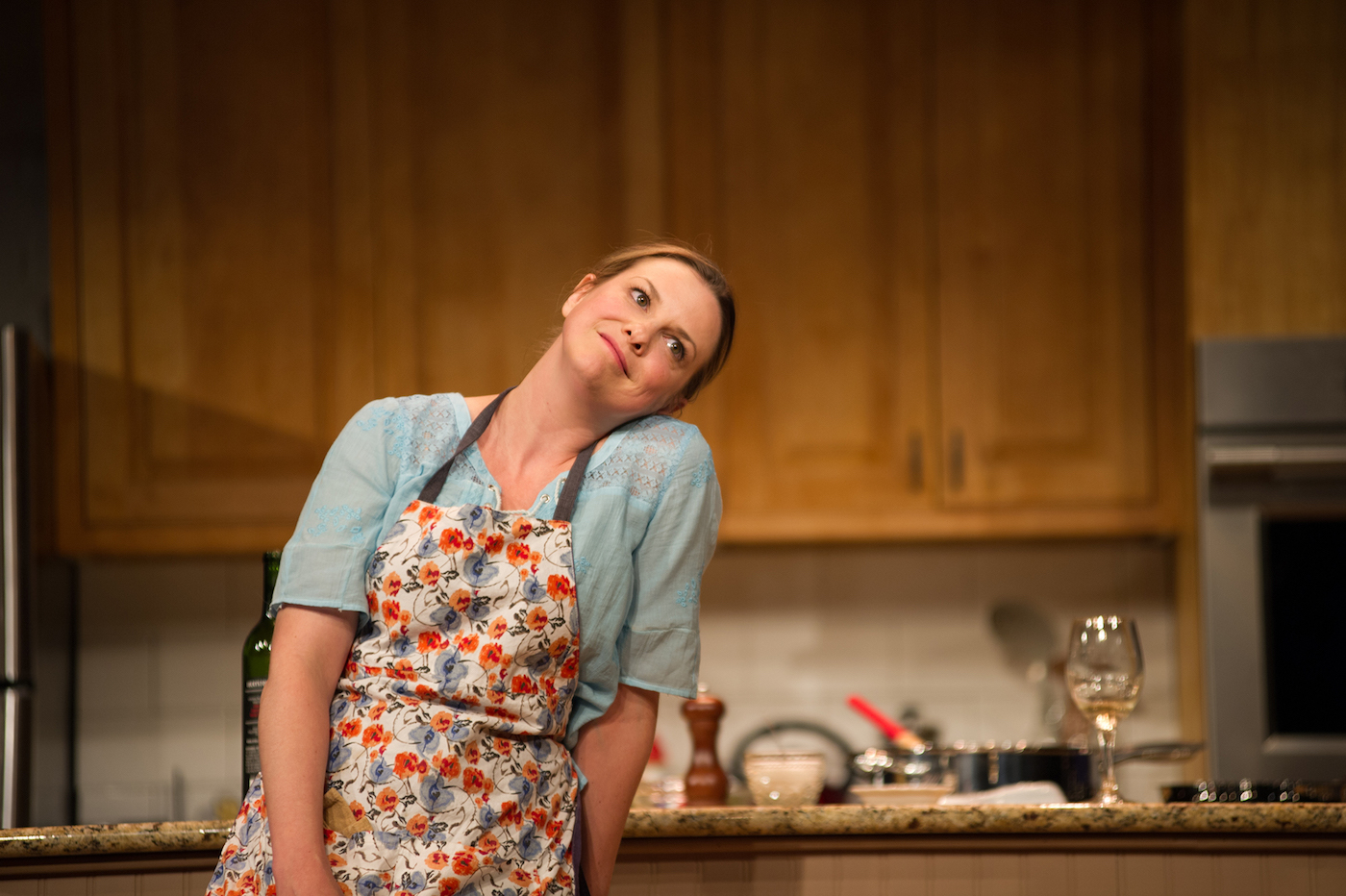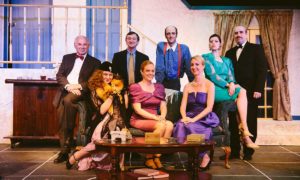Foodies have been selling books for decades, and now they’re on stage. In I Loved, I Lost, I Made Spaghetti, Jacques Lamarre’s dramatization of Giulia Melucci’s best-selling memoir, the actress playing the author, Larisa Oleynik, prepares a five-course meal — one course to accompany stories of each of the jerks with whom she was involved.
For the season opener at Ithaca’s Hangar Theatre (through Saturday, June 25), four couples — who have paid extra for the privilege — sit next to the stage and scarf down the dishes as Oleynik completes them. She also serves them two glasses of wine. The rest of the audience, which does not receive so much as a sesame seed, licks its lips and applauds.
A foodie has to do more than master countless complex recipes and actually cook them, like Julia Child and her legion of acolytes. The next step up is to see the gustatory as central to one’s identity and existence. While the taste buds may be only one of our senses, they are easily linked with the sensual of the entire body. Female foodies have been pushing this formula for some time, such as the confessional memoirs of Ruth Reichl, Comfort Me with Apples (2001) and Garlic and Sapphires (2006), in which amorous adventures are intertwined with the culinary.
When Melucci’s Spaghetti came out in 2009, it carried the subtitle, A Memoir of Good Food and Bad Boyfriends, and this useful one-line blurb from Mario Batali: “A foodie’s dream version of Sex and the City.” The book included recipes, usually with sarcastic names, for meals Melucci prepared to entertain these guys, then consoled herself when things did not work out. If this was all there was to it, we would not have enough to fill the stage for more than two hours, but Melucci was also on a social journey and her crisp urban wit, like an Italian-American Nora Ephron, pulls us in.
Melucci says that she was born in Brooklyn and still lives there, but in a more fashionable neighborhood. Her birth neighborhood was Bay Ridge, the scene of the John Travolta disco classic Saturday Night Fever. In such an immigrant and working-class environment, she could be well-grounded in Italian cuisine. But the family rose to affluence, and her mother has since escaped to Connecticut. Giulia attended ultra-posh Sarah Lawrence College, where she majored in art history. Without blushing she describes herself as a “complicated person” who prefers the company of “complicated” men.
She entered the publishing industry at starvation wages before 1990 and the Internet, when publishing was still considered glamorous. Soon she was thriving at fashionable addresses, such as the now-defunct satirical monthly Spy and the more sober-sided Harper’s. Thus four of the Bad Boyfriends are writers, or aspiring writers, and one is a cartoonist for The New Yorker.
Which brings us to the casting of Larisa Oleynik, a blonde with a Russian-sounding name, as Melucci. She brings extensive professional credits, including the role of Cynthia Cosgrove in the hit cable series Mad Men, but she does not look as though any of her ancestors came from the Mediterranean.
The role calls for three rare skills, starting with whip-sharp comic timing. Next comes the ability to actually prepare the meal Melucci is talking about. As difficult as this may sound, certain hand gestures, like turning the crank of a pasta machine, appear to be verbal cues as well, helping to remember what looks like 90 pages of solo dialogue. And she must also do men’s voices, the way actresses reading recorded books can impersonate male characters. True, each of the five men is ultimately comic, but Oleynik, under Michael Barakiva’s direction, produces a quintet of distinct male voices.
The men are nowhere near as appetizing as the dinners. As Melucci tells it, she was a virgin when she entered the publishing industry, so it’s pretty surprising that any of them made headway. And given that they are professional writers, they have horrible verbal approaches. Ethan, the second swain, bellows, “What does it take to seduce you?” The last one, Lachlan, a possibly deranged children’s writer, allows Oleynik to show off a Scottish accent.
Historical note: The biggest laugh of the evening is a gratuitous slam at Donald J. Trump, who is not a character in the action. A year of free-form campaigning has brought him to this.
[fbcomments url="" width="100%" count="on"]














